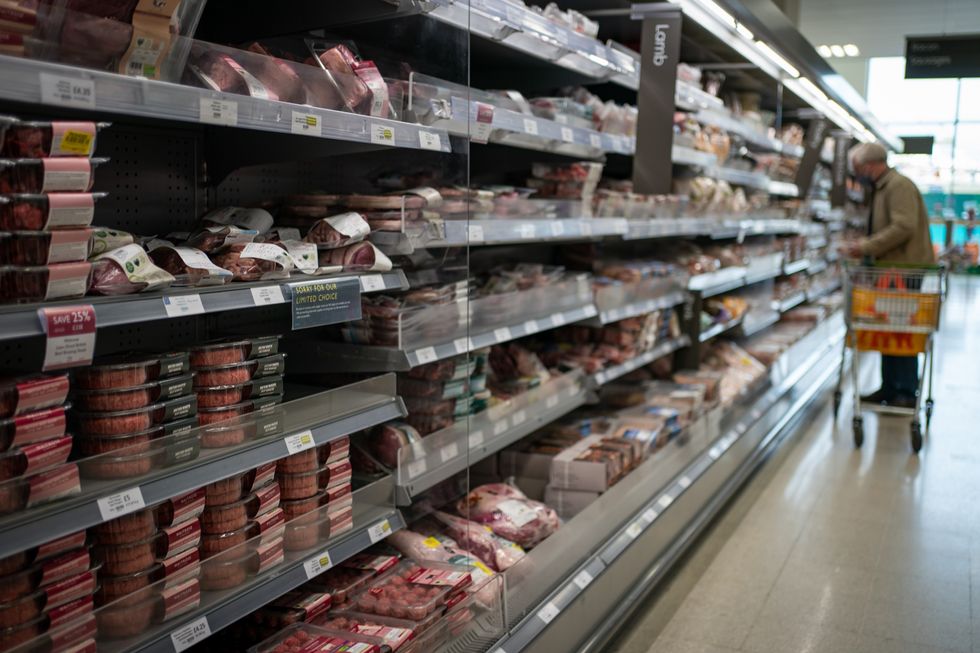State pension payments rise every year thanks to the tripe lock but this will not stop older people from being “hit relentlessly” with inflation-hiked prices
Don't Miss
Most Read
Trending on GB News
Britons reliant on their state pension will “be feeling the pinch” as the UK’s inflation woes continue, according to a leading retirement expert.
The Consumer Price Index (CPI) rate of inflation for the 12 month to December 2023 increased to four per cent, the Office for National Statistics (ONS) said today.
Despite retirees being guaranteed a 8.5 per cent hike to their payments in April, pension expert Becky O’Connor warned this rate rise “might not felt as you might expect”.
PensionBee’s director of Public Affairs noted that the overall trajectory of inflation is forecast to drop in the coming months with December’s rise being attributable to soaring tobacco sales.

Pensioners will still 'struggle' despite this year's 8.5 per cent payment rate hike
GETTY
However, she warned that pensioners who are “largely dependent” on the state pension will struggle with inflation-hiked prices going forward.
Speaking to GB News, she explained: “While pensioners will most likely be grateful for the rise in April and also pleased that prices are no longer rising as rapidly, they will still be feeling the pinch from relentlessly being hit with rising prices in recent months.
“It's important to remember that prices are still rising, despite the fall in inflation. They are just rising more slowly.
“Inflation at four per cent is also still well above the two per cent target. So while that 8.5 per cent rise in April is good news, the benefit of it might not be felt as much as you might expect.”
Through the triple lock, state pension payments are raised by whichever is highest out of the rate of inflation, average earnings or 2.5 per cent.
This will mean the full “new” state pension will jump from £203.85 per week to £221.20 per week which is the equivalent of £11,502.40 annually.
Furthermore, the full “old” state pension will come to £8,814 a year with this payment being for those who reached the state pension age before April 6, 2016.
The ‘old’ state pension (paid to those who reached state pension age before 6 April 2016) will increase from £156.20 per week to £169.50 per week (£8,814 per year).
LATEST DEVELOPMENTS:
 Food and drink inflation has particularly hit Britons over the past year PA
Food and drink inflation has particularly hit Britons over the past year PAThese changes to the state pension payment rates will be applied, as well as rate hikes for other benefit payments, in April 2024.
The retirement expert cited certain changes to prices in the market as being potentially a good sign older households in 2024.
Ms O’Connor added: “On the plus side, pensioners tend to spend a greater proportion of their budgets on energy and food, which means they are more exposed in particular to price changes in these categories.
“For both food and energy, price rises are slowing, which should hopefully mean less pressure on household budgets."









